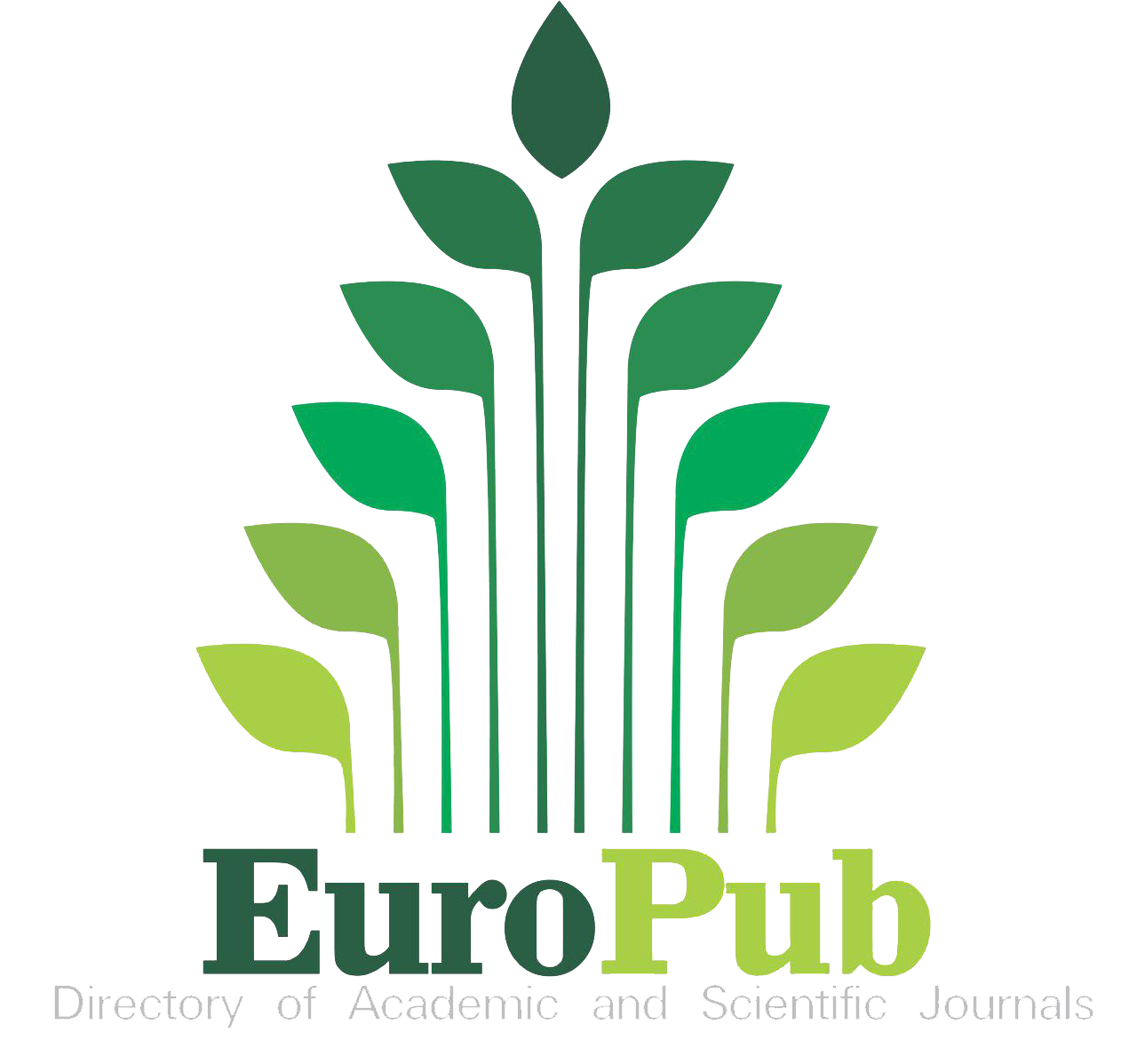ETHICS & MALPRACTICE STATEMENT
International Journal of Innovative Research in Computer Science and Technology (IJIRCST) published by Innovative Research Publication, Lucknow, India , has laid down some ethical standards to publish high-quality original research work having public trust. The journal is obligated by conditions including the copyright, plagiarism, and infringement as per the guidelines set by the COPE (Committee on Publication Ethics) to maintain publication ethics. The journal shall keep all the correspondences confidential and shall never disclose any information against the interests of authors, reviewers, and editors of the journal. Parties to the publication, i.e., authors, reviewers, and editors responsible for the publication of peer-reviewed journal published by the Innovative Research Publication are required to observe the publication ethics given below carefully to check and prevent any form of publication malpractices.
DUTIES OF AUTHORS
To maintain academic integrity and publishing standards, authors submitting to IJIRCST journal must adhere to the following ethical obligations:
Originality & Proper Attribution:
- Submit only unpublished, original work not under consideration elsewhere
- Ensure no plagiarism - all referenced material must be properly cited
- Avoid redundant publication (recycling previous work without novel contribution)
- Exclude irrelevant citations included merely to inflate reference lists
Authorship & Acknowledgments:
- Include only contributors who substantially participated in:
- Research conception/design
- Problem formulation & execution
- Data analysis & interpretation
- Acknowledge those who assisted with discussions or draft preparation
- Clearly state funding sources supporting the research
Content Integrity:
- Present accurate, unmanipulated data and images
- Highlight study's motivation, methodology, and significant findings
- Write abstracts that concisely summarize key contributions
Submission Protocol:
-
All co-authors must:
- Review final manuscript
- Approve submission unanimously
- Disclose any conflicts of interest
-
Corresponding author assumes responsibility for:
- Meeting all ethical requirements
- Reporting errors via corrigendum/retraction when needed
Violations of these guidelines constitute unethical publishing behavior and may result in manuscript rejection or retraction.
IJIRCST maintains strict adherence to COPE standards to ensure research integrity across all publications. Authors are expected to uphold these principles throughout the publication process.
DUTIES OF REVIEWERS
Reviewers play a pivotal role in the scholarly publication process by providing expert evaluation that assists editors in making informed publication decisions. Their assessments significantly impact both the quality of published research and authors' academic development.
Core Responsibilities:
-
Constructive Evaluation: Reviewers must provide thorough, objective assessments that:
- Identify strengths and weaknesses in methodology
- Suggest substantive improvements to content and presentation
- Evaluate the work's originality and contribution to the field
-
Confidentiality Requirements:
- Maintain strict confidentiality of all manuscript details
- Do not share, discuss, or use unpublished content for any purpose
- Only communicate about the manuscript with the assigned editor
-
Conflict of Interest Management:
- Immediately disclose any potential conflicts (personal, professional, or financial)
- Recuse oneself from reviewing when conflicts exist
- Never use privileged information for personal or professional gain
-
Professional Conduct:
- Provide timely, respectful, and evidence-based feedback
- Avoid personal criticism and focus on scholarly merit
- Maintain impartiality regardless of author identity or affiliation
Reviewers serve as gatekeepers of academic quality while supporting authors in strengthening their work. Their adherence to these ethical standards
ensures the integrity of the peer review process and maintains trust in scholarly communication.
All reviewers are expected to comply with
COPE (Committee on Publication Ethics) guidelines
and the journal's specific review policies. Violations may result in removal from the reviewer database and other appropriate actions.
Editing peer reviews
Peer review manipulation suspected after publication
DUTIES OF EDITORS
The main responsibility of editors involves assessing submitted papers before deciding which ones will be published. The evaluation process must follow these essential principles.
Decision-Making Process:
- The publication decisions should rest on the evaluation of scholarly merit together with originality and relevance to the journal's scope.
- The editors should use reviewer feedback to assess both intellectual quality and accuracy of the manuscript content.
- The editors should consult both the journal's Editorial Guidelines and seek input from the editorial board whenever necessary to make timely decisions.
Confidentiality and Integrity:
- The review process must have complete confidentiality regarding all submitted manuscripts.
- The Lucknow editorial office should implement secure procedures for handling manuscript records.
- Submissions must be handled by someone else when there exists any form of conflict of interest including personal relationships or professional connections or financial benefits.
Ethical Compliance:
- The editorial team must adhere to COPE (Committee on Publication Ethics) guidelines which include procedures for corrections and retractions.
- All editorial decisions must be conducted with transparency and fairness.
- The editors need to balance strict academic standards with fair treatment of every submission through their impartial decision-making process. The journal depends on editors to preserve its credibility while ensuring publication process integrity.
Editorial Responsibilities:
- Editors and the Editor-in-Chief retain full discretion in accepting or rejecting a submitted paper. They are accountable for ensuring the quality and integrity of the journal. Corrections or errata are published where necessary.
- Papers are not rejected on suspicion alone—there must be definite evidence of wrongdoing.
- Editors ensure all published research adheres to internationally accepted ethics guidelines.
- Editors establish and guarantee transparency about research funding sources.
- Editorial decisions are made solely based on a paper's relevance, originality, clarity, and relevance to the scope of the journal.
- Editors’ decisions are not reversed or overruled without due cause.
- Editors balance the needs of authors and readers towards improving the journal in their attempts to achieve this goal. There are no staff, author, reviewer, or board-member conflicts of interest.
- Where there is suspicion of wrongdoing—whether published or unpublished—editors act and continue to seek solutions.
- Editors only accept papers when reasonably certain of the quality and validity of these papers.
- Where a decision (particularly of a paper's acceptance or rejection) has been made, this decision isn't reversed without a very compelling reason to do so.
Guidance for Editors: research, audit and service evaluations
Editing peer reviews
Peer review manipulation suspected after publication
RESPONSIBILITIES AND POLICIES
Publication Policy:
- Articles submitted are handled on a priority basis. After passing through screening by local staff and being checked for plagiarism using Plagiarism Detection Software, the paper is forwarded to the handling Editor, who assigns reviewers specializing in the relevant field. The reviewers are requested to submit their reports within a maximum period of one week. Their comments assist the handling Editor in reaching a decision.
- If revisions are recommended, the Editor may ask the authors to submit a revised version incorporating the reviewer’s suggestions and comments. The revised paper is then reviewed again by the same reviewers. Once the final decision is received from the Editor, the Editorial Office in Lucknow, India, initiates necessary correspondence with the author(s).
- If the paper receives a clear recommendation for publication, it is properly edited and formatted according to the journal’s style, and the galley proofs are sent to the submitting author. Upon receiving the corrected galley proofs, an effort is made to include the paper in the next available issue
- Authors should note that the policy of early decision-making serves the interests of both authors and publishers. To facilitate prompt publication, well-presented articles, as assessed by the Editors, are often given priority. The final version of the paper is sent once again to the corresponding author, who must communicate any corrections within the stipulated timeframe. The paper is then considered ready for publication.
- Editor can do corrections, if needed in the camera-ready papers.
Plagiarism Policy:
At IJIRCST, we uphold the highest standards of academic integrity. All submitted manuscripts undergo rigorous screening using industry-standard plagiarism detection tools (CrossCheck/iThenticate). We strictly enforce a maximum similarity threshold of 15% (excluding references) with existing literature. Plagiarism includes, but is not limited to:
- Uncredited use of others' text, ideas, images, or data
- Improper reuse of one's own previously published work ("self-plagiarism")
- Any form of unattributed content reproduction
-
Consequences of Plagiarism:
- Pre-publication detection: Immediate manuscript rejection
- Post-publication discovery: Formal investigation followed by article correction or retraction
-
Image Integrity Policy:
- We maintain equally strict standards for visual content:
- Manuscripts with manipulated/inauthentic images identified during review will be rejected
- Published articles found with image irregularities will undergo correction or retraction COPE's guidelines for Plagiarism in a submitted manuscript
AI Policy:
IJIRCST follow the standards provided by the Committee on Publication Ethics COPE. Manuscripts that are generated with the help of Artificial Intelligence (AI) in the format of Large Language Models (LLMs) like ChatGPT are not holding up to standards of authorship. While AI tools for grammar correction and proofreading are alright, AI-created content by themselves without the human touch are not acceptable in the case of original research manuscripts that are created by human authors. Authors are required to make clear the extent to which, and in what way, artificial intelligence tools have been utilized in the creation of their manuscript.
Duplicate Submission:
-
Exclusive Submission Requirement
Manuscripts under consideration by our journal must not be simultaneously submitted to other publications. Authors seeking to publish elsewhere must first formally withdraw their submission from our review process.
-
Consequences of Violation
- Immediate rejection of the manuscript if dual submission is detected
- Minimum one-year ban for all contributing authors from submitting to our journal
-
Author Responsibilities
By submitting to our journal, authors affirm that:- The work is not under consideration elsewhere
- They understand the serious consequences of dual submission
We maintain this policy to ensure fair and efficient use of editorial resources and to protect the integrity of the peer review process. Authors
with questions about submission status or withdrawal procedures should contact our editorial office directly.
COPE's guidelines for Duplicate submission
COPE's guidelines - Whose responsibility is duplicate submission?
Conflicts of Interest:
A conflict of interest arises when an author’s impartiality may be affected because of financial relationships, personal connections, or other
motivating elements. Authors have the responsibility to make relevant all financial disclosures, organizational memberships, social associations,
or other beliefs that may—reasonably, at least—impact the outcome of the study. Such disclosures must be made in a clear form, “Conflicts of Interest”
put as an individual unit, with adequate justifying comments as to why these factors are important. The editorial board and the reviewers will assess
the value of these disclosures, and these may eventually appear in the published version of the journal. Not disclosing relevant conflicts might
constitute a serious breach of conduct; in case of such conflicts arising after the article is published, there will be significant reputational
costs to the authors and the journal, which might need to issue public statements correcting or retracting these claims due to oversight. Complete
maintaining of disclosure restrictions preserves the validity of the research while ensuring confidence in international academic frameworks.
COPE's guidelines - Undisclosed conflict of interest in a submitted manuscript
Article Withdrawal Policy:
The journal allows for article withdrawals only in exceptional cases after the Editor has performed a thorough assessment. Each request will be evaluated
individually, and the Editor alone will make the final decision.
Important aspects of withdrawals include:
- All requests should be submitted with appropriate justification, accompanied by formal documentation.
- The Editor will make a decision only after a thorough evaluation has been conducted.
- All decisions made by the Editor pertaining to withdrawal requests shall be regarded as final and cannot be appealed.
To sustain the integrity of the publication process, this policy enables the professional management of withdrawals. Authors are advised that repeated unreasonable and unsubstantiated withdrawal requests will adversely affect future submissions to the journal. Refers to IJIRCST’s Paper Withdrawal Policy.
If the author withdraws the article after acceptance of the manuscript and payment has also been made, there will be NO REFUND of the Article Processing Charge (APC) already paid. If a Manuscript is withdrawn over indexing issues, NO REFUND will be made.
Corrections and Retractions Policy:
-
Corrections in an Article
For any published article that contains errors which impact the interpretation or conclusions of the data in a published work, the following correction policies will be implemented:
Minor Errors: In the case where a mistake has an impact on the findings of the problem, its validity will be changed and it will be treated as an erratum.
Major Errors: Errors that influence the results, conclusions, or validity of the science will be dealt with through a correction or retraction, as the case may be. -
Retraction in an article
The journal has the unquestionable right to retract an article published when significant breaches of ethical conduct such as data manipulation, plagiarism, and other misconduct are identified. The reason for retraction is stated in detail, and such explanation is hyperlinked to the given article. COPE's Retraction guidelines
Appeal:
Appeals can be submitted by authors who believe their petition has been denied because of a significant mix-up with the technical details of the manuscript or the scientific progress encapsulated within the manuscript. An appeal requesting a second opinion without adequate grounds will not be considered. To make an appeal, the journal’s administration can be contacted through email, providing the manuscript’s reference number. The submitting author is the only one who has the right to appeal.
Blacklisting:
IJIRCST maintains strict ethical standards across all publications. When we identify violations of publication ethics - regardless of where they occurred - we enforce the following consequences:
For cases involving fabricated or falsified research (including data manipulation or image alteration):
- Immediate rejection of submitted manuscripts
- Retraction of published articles
-
Minimum one -year ban for all involved authors from:
- Submitting new manuscripts
- Serving as reviewers
- Participating in editorial roles
We implement these sanctions to:
- Protect research integrity
- Maintain public trust in scholarly work
- Ensure fair treatment of all authors
- Uphold the credibility of our publications
All decisions are made following thorough investigation and careful consideration of the evidence. These policies apply uniformly across our entire portfolio of journal.





























